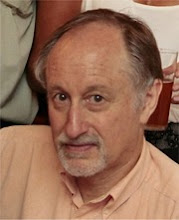
It turns out that the man who ran onto the court and kissed Rafael Nadal after a match at last year's US Open, creating a minor scandal, did it from the bottom of his heart. His name is Noam U. Aorta! It was a curious incident that highlights some of the ambiguity our culture demonstrates with regard to:
a) celebrities and the notion of celebrity
b) spontaneous demonstrations of affection
c) the "business" of security.
Nadal, the "victim", who was "hugged and kissed", took no offense and even seemed flattered by the gesture. In the video you can hear him say, "It's OK" and both during and after the incident he was smiling broadly. On that basis alone, I expect that, if asked (which is unlikely to happen), he would be opposed to prosecution. The law sees it differently:
Aorta will be charged with trespassing and faces possible jail time if convicted, prosecutors said.
“There was a breakdown,” U.S. Open spokesman Chris Widmaier said.
District Attorney Richard Brown, however, called it “particularly disturbing” because Aorta made physical contact with Nadal.
Of course, the law is the law, especially in the US. But I find it interesting that officials identified two distinct problematic actions: the physical contact of the anonymous fan with a celebrity and the "breakdown". Given Nadal's perception of the incident, the only thing that seems to me reasonable to worry about is the breakdown of the security system. And in that sense Aorta was rendering a vital service by demonstrating a hole in the system that could be corrected and possibly should be. If anything, he should be rewarded by the tournament management for it, just as software companies reward the "good" hackers who reveal holes in their security while going after the malicious ones who infect their software.
Unlike the man who tried, earlier this year, to place a hat on Roger Federer's head in the middle of the final of the French Open, Aorta approached Nadal after the end of his match. He shouldn't therefore be accused - as the French authorities did - of interrupting a sporting event. The intruder at Roland Garros also displayed a non-aggressive, possibly affectionate approach, but one which was disturbing for everyone (including Federer) as it took place near the beginning of the second set. In such circumstances, the timing was obviously calculated for maximum "attention getting", which is difficult to correlate with spontaneous affection. The quest for celebrity by intruding into the spotlight beamed on other celebrities is now a well-known social phenomenom. But Aorta appeared to be motivated by spontaneous enthusiasm rather than the desire to be noticed. He wasn't stealing the spotlight since the drama of the match was over and television was, by that time, probably airing commercials.
I think there are three interesting cultural issues here:
1. the fact that the prosecution implies an equivalence between "physical" and "disturbing", which may reflect attitudes in the US about intimacy and distance but possibly perceived differently in other cultures (e.g. Spain),
2. the recently acquired reflex in US society to see everything in terms of security, as the core US value of "control" seems to have morphed into an obsession with security (notice that in the video the commentators refer to two historical references: the attack on Monica Seles and 9/11!... the focus is on danger and risk),
3. the growing and somewhate paranoid trend of separating celebrities from real people, which also has negative psychological effects on celebrities, who often (Michael Jackson, Lindsay Lohan, etc.) lose their sense of their basic human identity.
Of course this last point is aggravated by the growing cult of celebrity associated very directly with the cult of success in capitalist cultures. It is linked to phenomena such as the emergence of "Reality TV", which should probably be called Irreality TV. Celebrity breeds success and success breeds celebrity and both produce wealth and/or what's perceived as easy money and lots of it. Everyone seeks success because they seek wealth. Instant success seems to have become a universal dream, which takes us one serious step further away from social reality.

In the original lyrics of "As Time Goes By" the first line contained the phrase "a kiss is just a kiss, a sigh is just a sigh", but when Warner Bros. integrated it so emblematically (and brilliantly) into the film Casablanca, Dooley Wilson sang, "a kiss is still a kiss, a sigh is just a sigh", highlighting, in Hollywood fashion, the positive side of kisses and the negative value of sighs (you always have to distinguish clearly the good from the bad).
I guess today it would be "a kiss is still physical contact".

5 comments:
Post a Comment